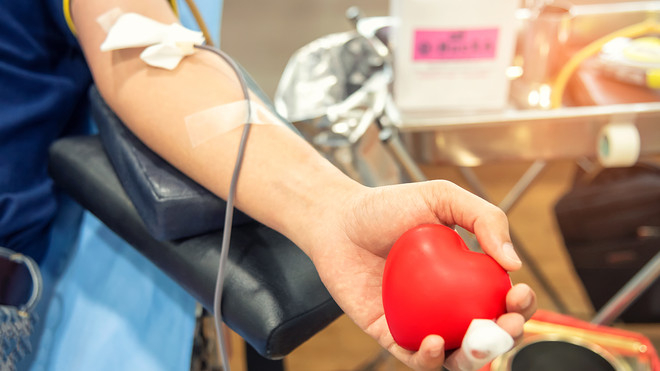
SANTIAGO – Every June 14, World Blood Donor Day is celebrated. In Chile, the anniversary is celebrated with an eye toward the donor drop registered as a result of the health emergency. The call is to destroy myths and to promote this action, since a donation can save the lives of 4 people.
This year, under the slogan Donate blood to make the world a healthier place, the World Health Organization promotes safe donation, that is, of people who do it regularly and without remuneration.
This is a worrying issue in Chile, since the Covid-19 pandemic caused a dramatic drop in the number of donors. “All the health services have had to suspend transfusions as a result of this contingency. It is important for people to understand that, in addition to hospitalizations for Covid19 patients, we have chronic patients who require transfusions every day, without considering polytraumatized people who arrive and use blood components on a piecework basis, “explains María José Pino, a specialized medical technologist. in Blood Bank and academic from the San Sebastián University (USS).
The professional, who works at the San Juan de Dios Hospital, faces daily with the shortage of donors, so she stresses that we must sensitize the population and increase the number of people who carry out this action voluntarily. “The procedure does not last more than 30 minutes, it does not cause harm to people’s health, on the contrary, the only benefit is that you save lives. In very rare cases, the donor may present small discomforts such as: dizziness and nausea, but these are quickly reversed,” she points out.
Regarding the requirements that a donor must meet, the specialist explains that the person must be over 18 years of age and, when presenting at the Blood Bank, must carry a photo identification (identity card, driver’s license, pass school, etc). Regarding his/her physical conditions, “he/she must weigh more than 50 kilos, basically, due to the volume of blood that is extracted (450 ml). It is important that the person does not attend fasting,” she adds.
Chile exceeds 3,100 deaths, records 6,509 new cases of COVID-19
In the interview and evaluation prior to blood collection, the medical technologist in charge will investigate some data to know the person’s state of health, consult him/her if he/she has had tattoos and how long ago, and if he/she has had risky sexual contacts, among other questions. He/she will also ask about some diseases, such as heart disease, that can deprive him/her of being a donor.
“Contrary to popular belief, diabetic people who take care of themselves with the diet can give blood, the same happens with a hypertensive person with their daily controls and pharmacological treatment,” emphasizes Pino.
The USS academic calls on the population to donate altruistically, even more so now, where the pandemic has raised fears regarding this procedure.
“People need to know that blood banks are working under maximum security measures to prevent infections. The call we make is to get closer to making donations, there are temporary permits that allow transit for these purposes. And most importantly, it is a safe procedure for the donor and it is a tremendous contribution to health services,” concludes the medical technologist.



